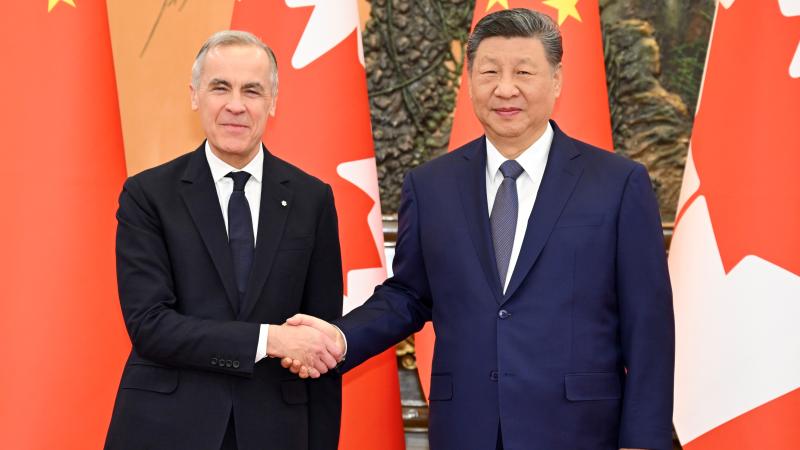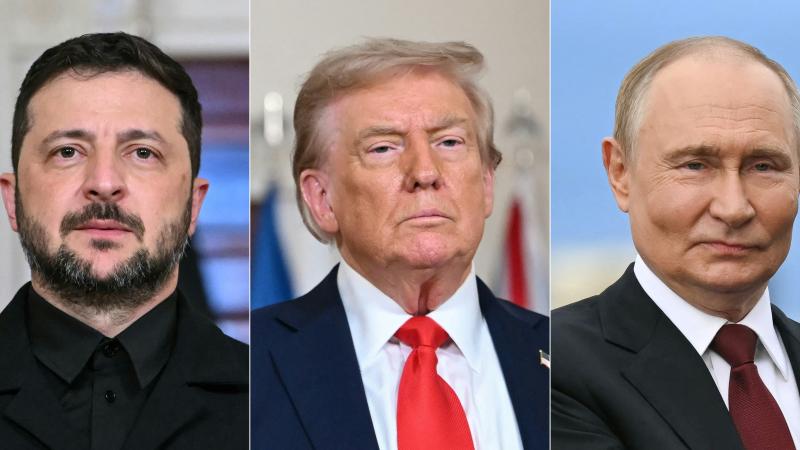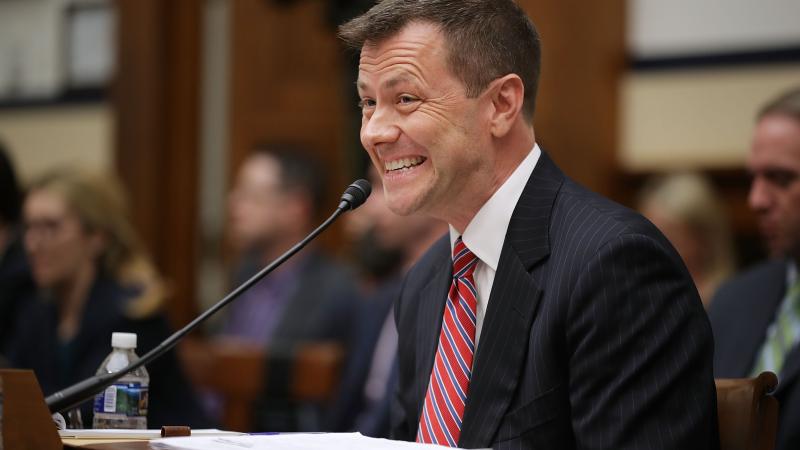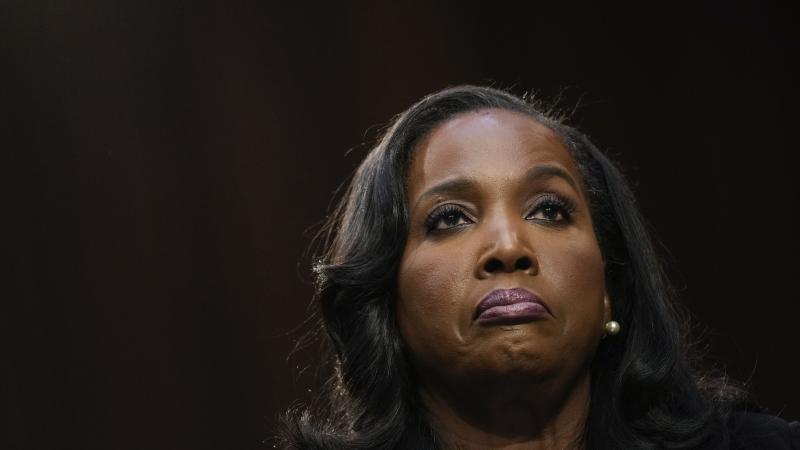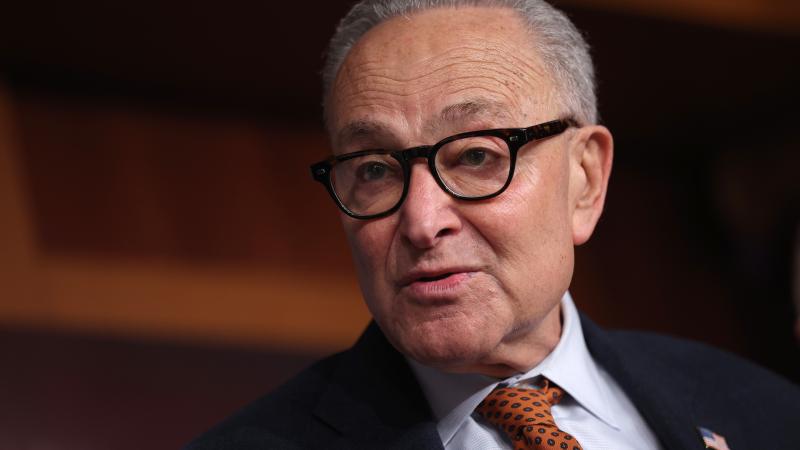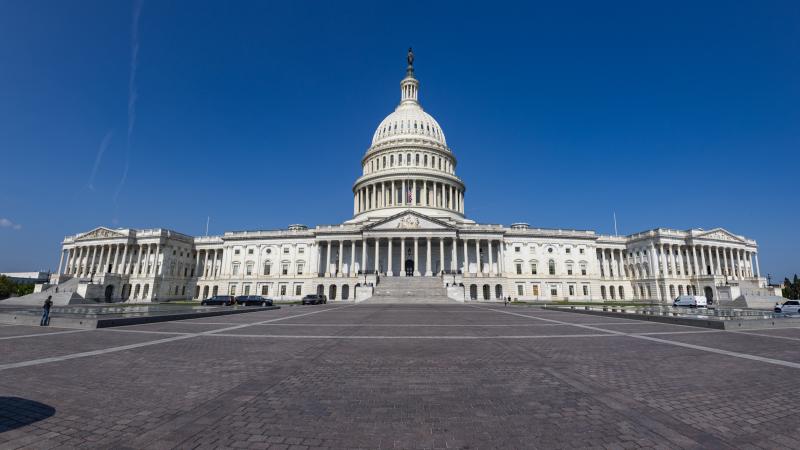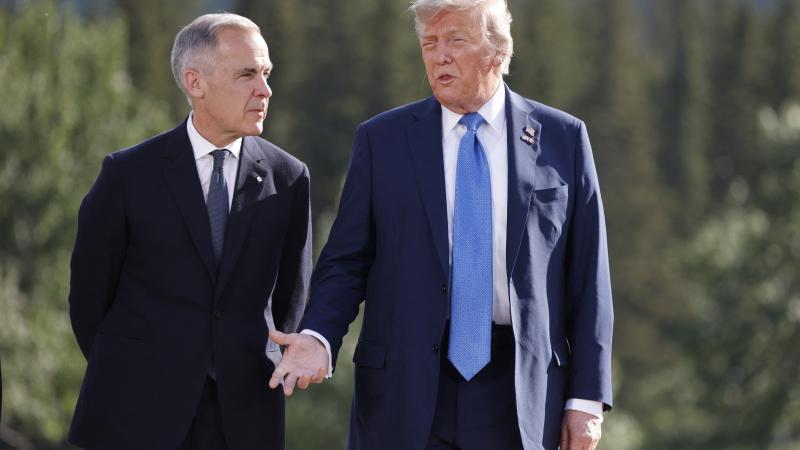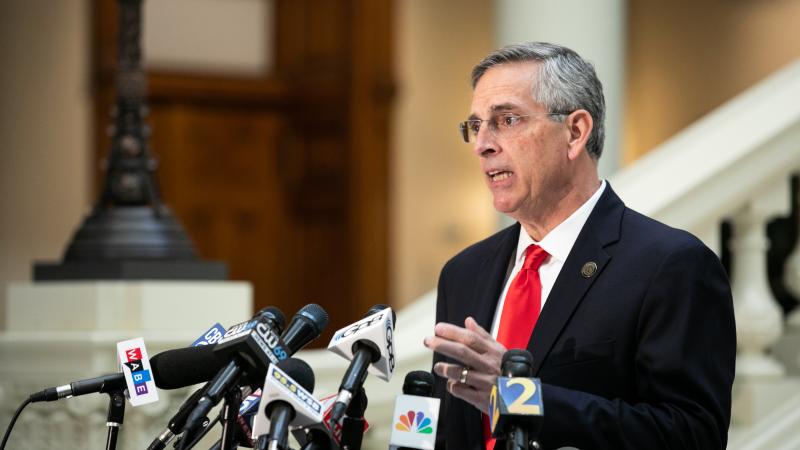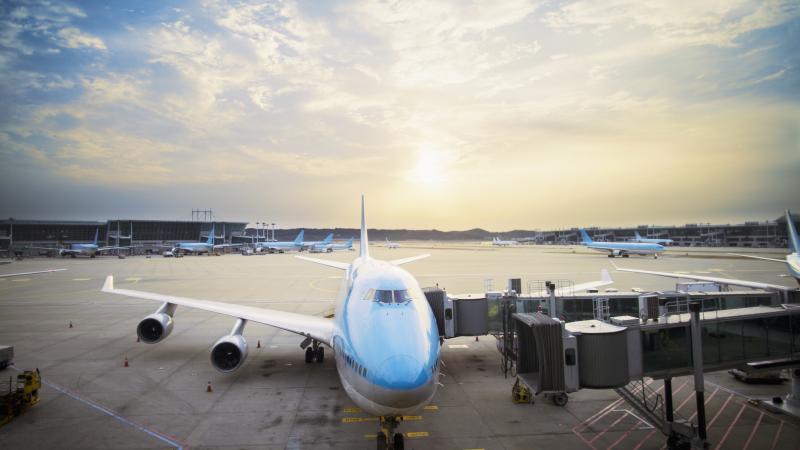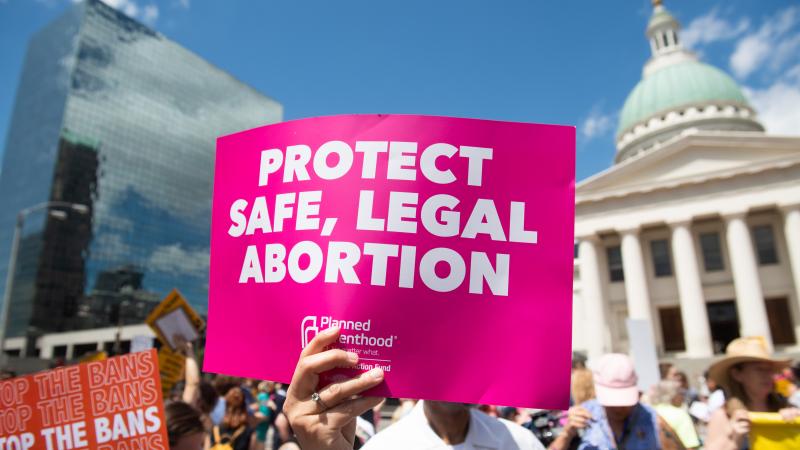By slashing State Department budget nearly in half, Rubio aims to make agency relevant again
Secretary of State Rubio’s testimony on Tuesday shows the Trump administration wants to return the State Department to its core function in implementing U.S. foreign policy.
Usually when Cabinet secretaries come to testify before Congress about budgets, they're seeking more money. But that's not the case with Secretary of State Marco Rubio.
President Donald Trump's chief diplomat urged senators on Tuesday to slash his agency’s budget in half and touted plans for a lean department devoid of the bloated bureaucracy that he argues made the agency increasingly irrelevant.
Rubio’s plan to nearly halve the State Department’s budget, even after it absorbed the U.S. Agency for International Development, makes it among the most dramatic of agency cuts in the Trump administration.
This big change is part of an effort to streamline State’s bureaucracy and decision-making after decades of bloat hampered its ability to clearly execute on the president’s foreign policy and after the agency found itself becoming replaced by the leaner National Security Council, Rubio told senators in his testimony before the Senate Foreign Relations Committee.
“The State Department had to change,” Rubio said. “It was no longer at the center of American foreign policy. It had often been replaced by the National Security Council or some other agency within the government, when in fact, we have these highly talented people that were being edged out.”
Rubio said the slashing of foreign aid programs in particular, which the administration found diverted “billions to ideological causes,” ran counter to American interests and damaged the culture at the agency—undermining its core functions.
"Consistent with the President's executive order, the Department has been reviewing our more than 15,000 foreign aid awards; we have already found billions diverted to ideological causes, including climate activism, diversity, equity, inclusion, and LGBTQ initiatives in foreign nations,” Rubio told senators.
With the assistance of the Department of Government Efficiency, spearheaded by Trump advisor and eccentric billionaire Elon Musk, the administration identified several USAID programs ranging from contraceptives for Afghanistan to LGBT diversity programs for European countries.
The agency’s own internal watchdog had also repeated warned at it had created serious "vulnerabilities" by doling out billions of tax dollars to overseas countries and groups without fulling vetting for terrorists and fraudsters or demanding transparency from recipients, Just the News previously reported.
These programs, the administration said, provided justification for a reorganization of foreign aid and humanitarian assistance to more closely align with concrete foreign policy interests rather than ideological priorities.
“[The programs] reflected State Department culture, where the creation of new offices and programs became a pathway to career advancement, and dedicated public servants were discouraged from finding ways to improve or streamline existing programs,” Rubio said in prepared remarks. “A State Department where everything took too long, cost too much money, involved too many individuals, and failed the American people.”
The official State Department request, which comes in at $28.5 billion, will “allow the Department to fulfill its mission” but cuts approximately $20 billion “in duplicative, wasteful, and ideologically driven programs,” Rubio said in prepared remarks released by the State Department ahead of his appearance on Tuesday.
These cuts are being done in isolation. Last month, Rubio proposed sweeping organizational changes to the State Department aimed at devolving power to local embassies and regional bureaus at the agency’s Washington headquarters.
While the “bloated” bureaucracy at the agency’s headquarters “has had unprecedented growth” while “costs have soared,” Rubio said that“far from seeing a return on investment, taxpayers have seen less effective and efficient diplomacy.”
The plans show that the State Department plans to eliminate or restructure 132 offices at its headquarters that employ 700 civil servants total, a previous report by the Free Press found. Among the offices slated for elimination or rolled into other offices include: the Office of Global Criminal Justice, which tracks genocides and war crimes; the Bureau of Conflict and Stabilization Operations; and the Under Secretary for Civilian Security, Democracy, and Human Rights. Vital functions of these offices, the plans show, will be absorbed by other or newly created, streamlined offices.
Part of Rubio’s goal to reverse the trend of bureaucratic creep at the department’s headquarters in Washington is to devolve power and on-site decision-making to local embassies, which are closest to the problems. For example, he said that humanitarian assistance programs that are effective in Guatemala may look very different than those that are effective in an African.
“The goal is to drive power and action to the regional bureaus and our embassies,” Rubio told the Senators in his opening statement.
“We want our foreign policy to be wholistic,” he explained. And that, he said, comes from being able to tailor solutions to each situation at the embassy level, making full use of the “talented” diplomatic workforce that has experience all around the world.
The shift is part of the Trump administration’s wider goal to return both realism and American interests to the center of U.S. foreign policy, which Rubio has repeatedly promised to make the key focus of the State Department during his tenure.
“Mature foreign policy requires a balancing of interests,” Rubio said at the hearing on Tuesday.
In his confirmation hearing in January, Rubio described how the post-Cold War consensus—which incubated at the State Department—strengthened American enemies, especially China. In his view, by abandoning a foreign policy focused on national interest, American leaders in that period allowed other countries like China to exploit the “global order” established in the wake of World War II for their own benefit at the expense of the United States, whether it be in trade or American humanitarian assistance.
The second Trump administration’s State Department, he promised, would instead shift focus from this consensus and put American interest first, including repurposing foreign aid money from wasteful projects to a rapid response fund.
Part of this plan involved a redesigned foreign aid system, which the State Department is calling the America First Opportunity Fund, which the secretary described as “a $2.9 billion flexible account that consolidates numerous fragmented and inefficient foreign assistance programs.” Rubio told senators this new foreign aid fund will allow the State Department to “respond rapidly to crises,” like supporting immigration repatriation efforts, engage with partner countries to respond to natural disasters or conflicts, or confronting China’s malign activities.
“The A1OF builds on the lessons we learned from USAID, the Department’s existing foreign aid award system’s failures, and the few significant successes,” Rubio promised.
“[These] reforms had to happen—at USAID, 12 cents of every dollar was reaching the recipient,” Rubio said. “That means that in order for us to get aid to somebody, we had to spend all this other money supporting this foreign aid industrial complex.”
He continued, "We’re going to find more efficient ways to deliver aid to people directly, and it’s going to be directed by our regional bureaus, and it’s going to sponsor programs that make a difference, and it’s going to be part of a holistic approach to our foreign policy.”
